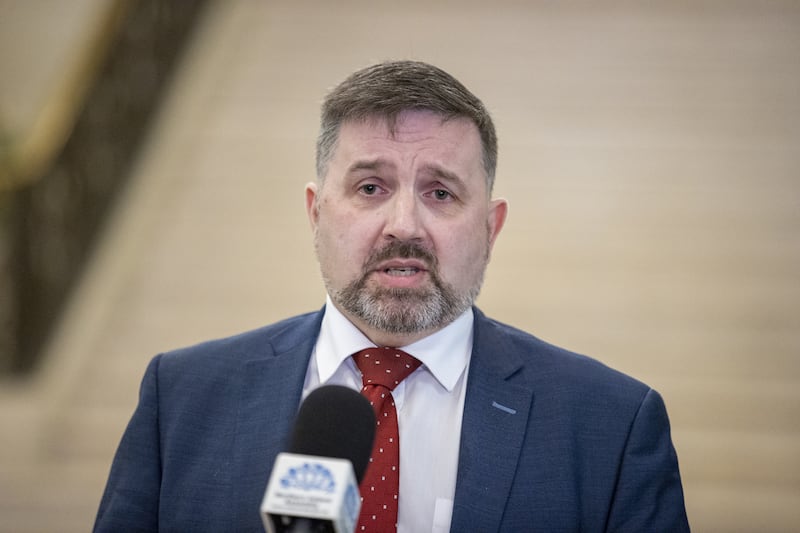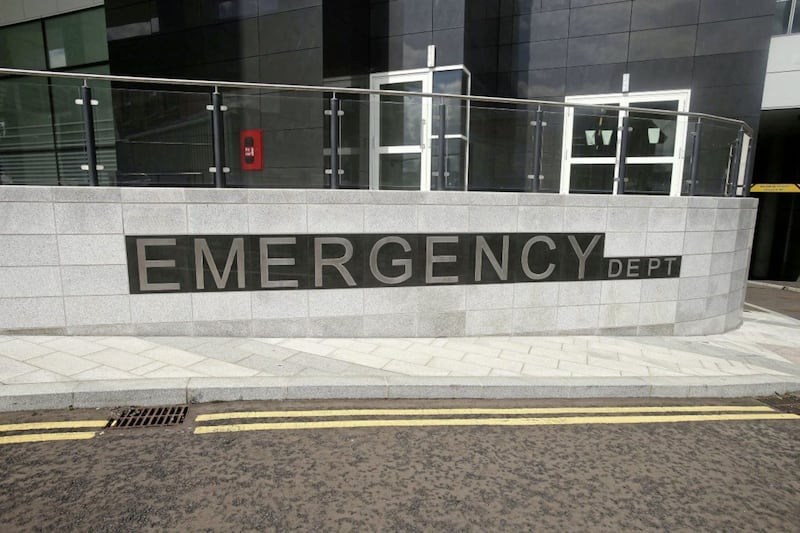Pressure facing emergency department staff at the north’s hospitals is “unsurmountable” it has been warned after new figures showed some of the worst figures for waiting times on record.
The Royal College of Emergency Medicine (RCEM) said there is “no respite in sight” for staff, as the Department of Health published data on A&E wards for October to December.
The figures show December was the worst month on record for meeting waiting time targets, with the percentage waiting for the four hours or less target falling below 40% for the first time ever.
The number of patients who waited 12 hours or longer also increased by 16 times compared to the same time-frame in 2016.
Derry’s Altnagelvin Hospital was the worst for waiting times in December, with the reported median time from arrival to admission standing at just under 22 hours.
RCEM Northern Ireland vice chair, Dr Michael Perry, said: “The unsurmountable pressure on emergency departments is proving detrimental to patients and staff, with no respite in sight.

“Staff and patients continue to deal with the knock-on effects of overcrowding and long waits in corridors or ambulance queues. This is frustrating, uncomfortable and undignified. Patients and staff deserve better.
“In the face of such adversity staff are managing to keep emergency departments running – but this is not sustainable, and staff are at breaking point.”
Dr Perry called for Stormont health minister Robin Swann to prioritise bed capacity and staff retention before urgent and emergency care in the north “implodes”.
Mr Swann said he was “acutely aware” of emergency department pressures and “very conscious of the toll on both staff and patients”.

“A central factor is capacity in social care, which impacts on hospital discharge rates and consequently on patient flow from EDs,” he said.
“These pressures across the system have built up over many years and cannot be quickly or simply fixed. However, I am convinced that a way forward is achievable through investment in both new pathways for urgent care and supporting discharge, maximising our existing capacity, productivity and efficiency and changing how we organise some services.”









